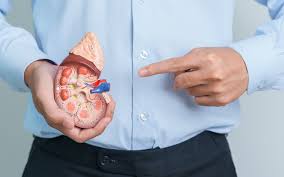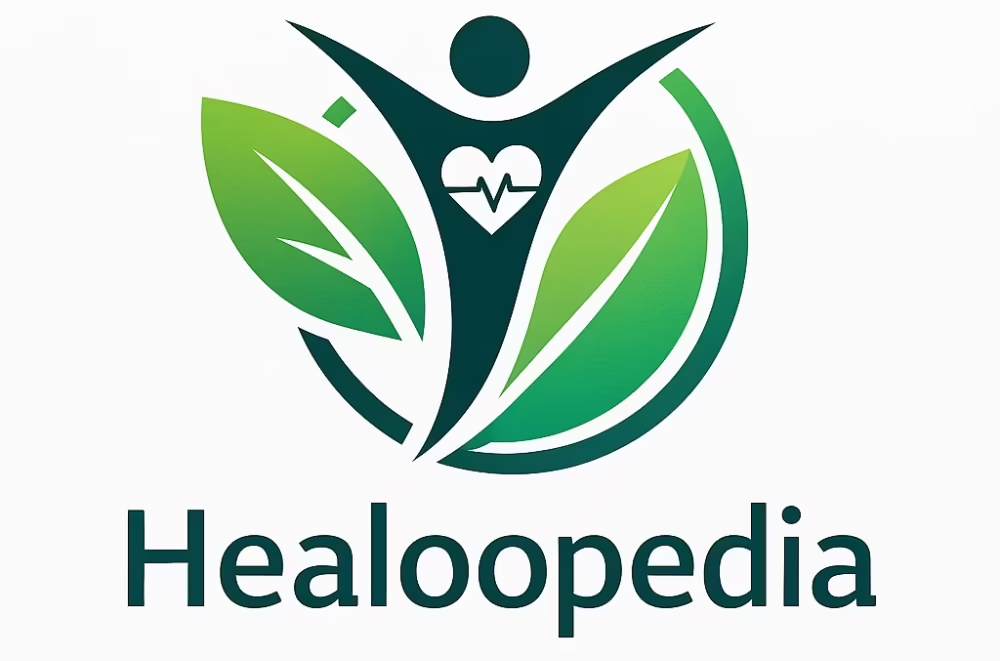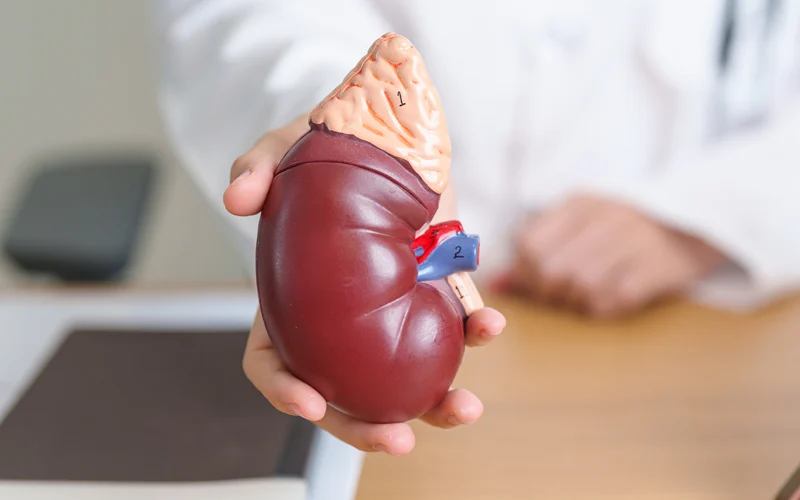Table of Contents
Your Healthy Kidney Diet are vital organs that work nonstop to filter toxins, balance electrolytes, manage fluid levels, and regulate blood pressure. Despite their small size, their role in maintaining overall health is immense. To keep these organs functioning at their best, following a well-structured Healthy Kidney Diet is essential.
A Healthy Kidney Diet isn’t just about avoiding certain foods—it’s about nourishing your body in a way that supports kidney performance and reduces the risk of long-term damage. Whether you’re looking to prevent kidney disease or manage an existing condition, the right diet can make a significant difference.
In this guide, we’ll explore why kidney-friendly nutrition matters, which nutrients your kidneys need most, the best foods for kidney health, and simple dietary strategies to maintain kidney function. By making thoughtful food choices, you can protect your kidneys, enhance your overall well-being, and live a healthier life with confidence.
Importance of a Healthy Kidney Diet
Following a proper Healthy Kidney Diet plays a vital role in reducing the strain on your kidneys, allowing them to function more efficiently. When your diet is tailored to support kidney health, it helps regulate blood pressure, stabilize blood sugar levels, and maintain proper fluid and electrolyte balance—all of which are critical to keeping the kidneys healthy.
For individuals at risk of or already managing chronic kidney disease (CKD), kidney stones, or frequent urinary tract infections (UTIs), a kidney-friendly diet acts as a first line of defense. It limits the buildup of harmful waste products in the blood and reduces the burden on damaged or weakened kidneys. Over time, this approach significantly lowers the chances of further kidney deterioration and the need for dialysis or transplant.
By making intentional dietary choices, such as limiting sodium, phosphorus, and potassium intake while staying hydrated and consuming kidney-friendly nutrients, you can effectively support your renal system and avoid future complications.

Key Nutrients for Kidney Health
Maintaining a Healthy Kidney Diet involves more than just avoiding certain foods—it’s about balancing the intake of essential nutrients to support kidney function while preventing further strain. Below are some of the most important nutrients to monitor in your daily meals if you’re focused on kidney health.
1. Protein – Quality Over Quantity
High-quality protein is crucial for tissue repair, hormone production, and overall body maintenance. However, excessive protein intake—especially from red meats or processed sources—can increase the workload on your Healthy Kidney Diet. For individuals with compromised kidney function, it’s especially important to moderate protein consumption to prevent further damage.
Kidney-safe protein options include:
- Fatty fish like salmon, trout, and tuna (also rich in omega-3 fatty acids)
- Eggs, particularly egg whites
- Lean cuts of chicken or turkey
- Plant-based proteins such as tofu, lentils, and beans in small portions
When following a Healthy Kidney Diet, choosing the right kind and amount of protein can help preserve kidney function while still supporting your body’s needs.
2. Sodium – Reduce to Protect Kidney Health
Excess sodium (salt) intake can elevate blood pressure and cause fluid retention, both of which place additional stress on your kidneys. For those aiming to maintain a healthy kidney diet, minimizing sodium is non-negotiable.
Tips to manage sodium intake:
- Avoid processed foods, fast food, and canned soups
- Read nutrition labels and choose low-sodium options
- Cook meals at home using fresh, whole ingredients
- Flavor your food with herbs, spices, lemon juice, or vinegar instead of table salt
By limiting salt, you can significantly ease the burden on your kidneys and reduce the risk of further damage.
3. Potassium – Balance Is Key
Potassium is necessary for nerve signaling and muscle contractions, but excess potassium can be harmful if your kidneys are not working efficiently. In a Healthy Kidney Diet, managing potassium levels is especially important for those in advanced stages of kidney disease.
Low-potassium food choices include:
- Apples
- Blueberries, strawberries, and other berries
- Cabbage
- Cauliflower
- Green beans
These foods provide nutrients without overwhelming your kidneys with excess potassium.
4. Phosphorus – Protect Your Bones and Kidneys
While phosphorus supports bone strength and cell repair, too much of it can lead to calcium imbalances and further kidney complications. For individuals with kidney problems, phosphorus often builds up in the blood, which can cause bone weakening and heart issues.
To reduce phosphorus intake:
- Limit processed meats, cheese, and carbonated sodas
- Avoid foods with phosphorus additives (check food labels for ingredients ending in “-phosphate”)
- Choose alternatives like:
- White rice
- Corn
- Green beans
- Non-dairy milk (with no added phosphate)
Keeping phosphorus in check is a critical part of a successful Healthy Kidney Diet, especially in managing or preventing chronic kidney disease.
5. Fluids – Staying Hydrated on a Healthy Kidney Diet
Proper hydration is a cornerstone of a Healthy Kidney Diet, as fluids—especially water—play a critical role in supporting kidney function. Drinking enough water helps your kidneys efficiently flush out waste, remove excess sodium, and reduce the risk of kidney stones and urinary tract infections (UTIs).
Why Fluids Matter for Kidney Health
Water keeps your blood vessels open so that nutrients can reach your kidneys and waste can be eliminated through urine. When you’re dehydrated, the filtering function of the kidneys slows down, potentially allowing harmful waste products to accumulate in your body.
How Much Water Should You Drink?
For most healthy individuals, drinking about 6–8 glasses (1.5–2 liters) of water per day is a good rule of thumb. However, fluid needs vary depending on your age, climate, physical activity, and most importantly, kidney condition.
💡 Important: If you have Chronic Kidney Disease (CKD), heart issues, or are undergoing dialysis, your doctor or dietitian may recommend fluid restrictions to prevent fluid overload and swelling. Always consult a healthcare provider for personalized hydration guidance.
Best Fluid Choices for a Healthy Kidney Diet
- Plain water – the best and safest choice
- Herbal teas (low in potassium and caffeine-free)
- Infused water with cucumber, mint, or lemon (without sugar)
- Unsweetened cranberry juice (in small quantities)
Fluids to Avoid or Limit
- Sugary drinks like soda and fruit juices, which can raise blood sugar and phosphorus levels
- Caffeinated beverages that can irritate the bladder and mildly dehydrate
- Alcohol, which may strain kidney function over time
By drinking the right types and amounts of fluids, you help maintain kidney efficiency and reduce the risk of complications—all key aspects of a sustainable and Healthy Kidney Diet.

Foods to Include in a Healthy Kidney Diet
Eating the right foods is essential for maintaining kidney health and preventing further damage. A Healthy Kidney Diet focuses on nutrient-rich, whole foods that support kidney function without overloading them. Here are the best food groups to include:
1. Fresh Fruits and Vegetables
Fresh fruits and vegetables provide important vitamins, minerals, and antioxidants that protect your kidneys from damage. Choose kidney-friendly options that are low in potassium, especially if you have kidney issues:
- Fruits: Apples, pears, grapes, and berries (blueberries, strawberries, raspberries) are excellent choices because they are naturally low in potassium and packed with antioxidants.
- Vegetables: Bell peppers, cauliflower, and onions are great for flavor and nutrients without stressing the kidneys. Avoid high-potassium leafy greens like spinach and kale if your potassium needs are restricted. Instead, opt for lighter leafy greens like lettuce or cabbage.
2. Whole Grains and Healthy Carbohydrates
Whole grains provide energy, fiber, and essential nutrients without causing spikes in blood sugar or burdening the kidneys:
- Brown rice, quinoa, oats, and whole wheat bread are nutritious sources of complex carbohydrates.
- Sweet potatoes are a healthier alternative to regular potatoes but should be eaten in moderation, especially if you need to control potassium intake.
3. Healthy Fats
Incorporating healthy fats supports heart health and provides essential fatty acids that reduce inflammation—a key factor in kidney health:
- Olive oil is rich in antioxidants and heart-friendly monounsaturated fats.
- Coconut oil offers medium-chain triglycerides that are easy to digest.
- Flaxseeds are a good source of omega-3 fatty acids and fiber.
- Avocados contain healthy fats but should be consumed in moderation due to their potassium content.
4. Lean Proteins
Protein is important for muscle repair and overall body function, but too much can strain your kidneys. Focus on lean, kidney-friendly protein sources:
- Skinless chicken and turkey are low in fat and provide high-quality protein.
- Fish, especially fatty fish like salmon and trout, offer omega-3 fatty acids that support kidney and heart health.
- Eggs are versatile and nutrient-dense without excess phosphorus.
- Plant-based proteins like beans, lentils, and tofu can be good alternatives but should be consumed in appropriate amounts depending on your kidney condition.
Including these foods in your daily meals can help you maintain a balanced and kidney-friendly diet, supporting overall kidney health and reducing the risk of kidney-related complications.

Foods to Avoid for a Healthy Kidney Diet
Maintaining kidney health requires not only eating the right foods but also avoiding those that can strain your kidneys and worsen kidney function. Here are the main foods to limit or avoid in a Healthy Kidney Diet:
1. High-Sodium Foods
Excess sodium increases blood pressure and causes fluid retention, putting extra stress on your kidneys. It’s important to reduce salt intake by avoiding:
- Canned soups and vegetables that often contain added salt
- Processed meats such as sausages, deli meats, and bacon
- Fast food items that are typically high in sodium
- Salty snacks like chips, pretzels, and salted nuts
2. High-Potassium Foods
While potassium is essential for nerve and muscle function, too much potassium can be dangerous for those with kidney issues. Avoid or limit:
- Bananas and oranges, which are naturally rich in potassium
- Potatoes and tomatoes, especially for individuals with chronic kidney disease (CKD)
Always check with your healthcare provider about your potassium needs.
3. High-Phosphorus Foods
Excess phosphorus can cause calcium imbalances and bone problems, so it’s crucial to limit:
- Dairy products like milk, cheese, and yogurt
- Nuts and seeds, which are phosphorus-dense
- Sodas and cola beverages containing phosphoric acid
- Processed and packaged foods often loaded with phosphorus additives
4. Sugary and Processed Foods
Foods high in sugar and refined carbohydrates contribute to inflammation and weight gain, negatively impacting kidney health:
- Soft drinks and sugary beverages
- Pastries, cakes, and candies
- Refined carbs such as white bread and many snack foods
Reducing these can help protect your kidneys and improve overall health.
Practical Tips for a Healthy Kidney Diet
To get the most benefit from your kidney-friendly eating plan, follow these simple but effective strategies:
1. Read Food Labels Carefully
Always check nutrition labels for sodium, potassium, and phosphorus content, especially in packaged and processed foods. This helps you avoid hidden ingredients that can harm your kidneys.
2. Cook at Home
Preparing meals at home gives you full control over what goes into your food. Use fresh ingredients and avoid processed additives to make your meals healthier and kidney-friendly.
3. Stay Hydrated
Drinking enough water is essential to flush out toxins and keep your kidneys functioning well. However, if you have advanced kidney disease, consult your healthcare provider about the right amount of fluids for you.
4. Maintain a Balanced Diet
Include a variety of nutrient-rich foods from all food groups while keeping portion sizes moderate. Balance helps provide all the nutrients your body needs without overwhelming your kidneys.
5. Consult a Dietitian
If you have kidney disease or other health concerns, working with a registered dietitian specialized in renal nutrition can help tailor a meal plan that meets your unique needs and protects your kidney health.
Following these guidelines and avoiding harmful foods are key steps to supporting your kidneys and maintaining long-term health.
FAQs: Healthy Kidney Diet
Q1. Why is a kidney-friendly diet important?
Answer:
Your kidneys play a vital role in filtering waste and maintaining the right balance of fluids and minerals in your body. Following a kidney-friendly diet reduces the strain on your kidneys, helping them function efficiently. This diet also lowers the risk of developing kidney diseases, kidney stones, and urinary tract infections (UTIs), supporting your overall health and well-being.
Q2. What are the best foods for kidney health?
Answer:
To support healthy kidney function, it’s essential to include nutrient-rich foods such as:
- Fresh fruits and vegetables like apples, berries, cabbage, and cauliflower
- Whole grains including brown rice, quinoa, and oats
- Lean protein sources such as fish, skinless chicken, eggs, and tofu
- Healthy fats found in olive oil, flaxseeds, and avocados
These foods provide essential nutrients without overloading the kidneys.
Q3. What foods should I avoid for kidney health?
Answer:
Certain foods can put extra stress on your kidneys, so it’s best to limit or avoid them. These include:
- High-sodium foods: Processed meats, canned foods, salty snacks, and fast food
- High-potassium foods: Bananas, oranges, potatoes, and tomatoes (especially for people with kidney issues)
- High-phosphorus foods: Dairy products, sodas, and processed foods
- Sugary and processed foods: Soft drinks, pastries, candies, and refined carbohydrates
Avoiding these helps protect your kidneys and supports overall kidney health.
Q4. How does too much salt affect kidney health?
Answer:
Excess salt intake raises blood pressure and causes your body to retain fluid. This makes it harder for your kidneys to function properly and can accelerate kidney damage. Reducing processed foods and using herbs and spices instead of salt can significantly benefit your kidney health.
Q5. Should I eat less protein for kidney health?
Answer:
For people with chronic kidney disease (CKD), consuming too much protein can overload the kidneys. It’s important to eat moderate amounts of high-quality protein such as fish, eggs, lean poultry, and plant-based proteins like lentils and tofu. This helps maintain muscle health while protecting the kidneys.
Q6. How much water should I drink for healthy kidneys?
Answer:
Adequate hydration helps kidneys flush out toxins and prevents kidney stone formation. However, individuals with CKD should consult their healthcare provider to determine the right amount of fluids to avoid overloading the kidneys.
Q7. What are the best diets for kidney health?
Answer:
Several diets support kidney health effectively:
- DASH Diet: Low in sodium and rich in whole foods like fruits, vegetables, and whole grains
- Mediterranean Diet: Emphasizes healthy fats, lean proteins, and fresh produce
- Low-Protein Diet: Recommended for those with kidney disease under medical supervision to reduce kidney strain
Q8. Can diet help prevent kidney stones?
Answer:
Yes, a proper diet plays a key role in preventing kidney stones. Tips include:
- Staying well hydrated
- Reducing sodium intake
- Limiting high-oxalate foods like spinach, nuts, and chocolate
- Eating calcium-rich foods in moderation
These steps reduce the risk of stone formation and support kidney health.
Q9. Do I need to avoid all high-potassium foods?
Answer:
Not necessarily. For individuals with healthy kidneys, potassium-rich foods are beneficial. However, people with CKD may need to limit foods high in potassium, such as bananas, oranges, potatoes, and tomatoes, to prevent dangerous potassium buildup in the blood.
Q10. Should I talk to a doctor before changing my diet?
Answer:
Absolutely. If you have kidney disease or other health conditions, it’s important to consult a healthcare professional or dietitian before making major diet changes. They can design a personalized kidney-friendly diet plan that meets your specific needs.
You can see our latest post click here







I am impressed with this site, rattling I am a fan.
Whats Going down i’m new to this, I stumbled upon this I have discovered It absolutely useful and it has helped me out loads. I am hoping to give a contribution & help different customers like its aided me. Good job.
Does your site have a contact page? I’m having problems locating it but, I’d like to send you an e-mail. I’ve got some suggestions for your blog you might be interested in hearing. Either way, great blog and I look forward to seeing it expand over time.
When I originally commented I clicked the -Notify me when new comments are added- checkbox and now each time a comment is added I get four emails with the same comment. Is there any way you can remove me from that service? Thanks!
Very interesting info!Perfect just what I was searching for!
Hello are using WordPress for your site platform? I’m new to the blog world but I’m trying to get started and set up my own. Do you require any coding expertise to make your own blog? Any help would be really appreciated!
changan uni характеристики https://changan-v-spb.ru
This is really interesting, You’re an excessively professional blogger. I’ve joined your rss feed and look forward to seeking more of your excellent post. Also, I have shared your web site in my social networks!
Hey this is kinda of off topic but I was wondering if blogs use WYSIWYG editors or if you have to manually code with HTML. I’m starting a blog soon but have no coding knowledge so I wanted to get guidance from someone with experience. Any help would be enormously appreciated!
whoah this blog is excellent i love reading your posts. Keep up the great work! You know, a lot of people are looking around for this information, you can aid them greatly.
Hello! I know this is kinda off topic however , I’d figured I’d ask. Would you be interested in trading links or maybe guest writing a blog article or vice-versa? My website goes over a lot of the same topics as yours and I believe we could greatly benefit from each other. If you’re interested feel free to shoot me an email. I look forward to hearing from you! Fantastic blog by the way!
Wonderful work! This is the type of info that should be shared around the net. Shame on Google for not positioning this post higher! Come on over and visit my site . Thanks =)
Jatt777game! Been playing a bit here and there. Pretty standard set of games, but runs smoothly. Could be worse, could be better! Give it spin: jatt777game
Great – I should definitely pronounce, impressed with your website. I had no trouble navigating through all the tabs as well as related info ended up being truly easy to do to access. I recently found what I hoped for before you know it in the least. Reasonably unusual. Is likely to appreciate it for those who add forums or anything, site theme . a tones way for your client to communicate. Nice task.
Thanks – Enjoyed this update, is there any way I can get an email whenever there is a new update?
Great site. Lots of helpful information here. I am sending it to some pals ans additionally sharing in delicious. And obviously, thank you for your sweat!
Win444telegram uses Telegram for notifications? That’s kinda cool. Keeps you in the loop with all the promos and stuff. Plus, their site isn’t bad either. win444telegram bringing Telegram to the game!
Thanx for the effort, keep up the good work Great work, I am going to start a small Blog Engine course work using your site I hope you enjoy blogging with the popular BlogEngine.net.Thethoughts you express are really awesome. Hope you will right some more posts.
Jiliasia8, man! This place has a sick selection of JILI games! I’m talking the good stuff. Deposits are quick, withdrawals are pretty fast too. Give it a look-see if you’re a JILI fan like me! jiliasia8
A formidable share, I simply given this onto a colleague who was doing slightly analysis on this. And he in truth purchased me breakfast because I found it for him.. smile. So let me reword that: Thnx for the deal with! But yeah Thnkx for spending the time to discuss this, I feel strongly about it and love reading extra on this topic. If potential, as you become expertise, would you thoughts updating your blog with extra details? It’s highly useful for me. Huge thumb up for this blog submit!
Keep functioning ,terrific job!
Hey! Just found c54366 and gave it a shot. Pretty slick! Definitely gonna be checking this out more often. Good stuff! Check it out here: c54366
kraken зайти
my web-site; кракен darknet
Just downloaded the 123betapp and I’m impressed! Super smooth and user-friendly, makes betting on the go a breeze. Plus, the notifications keep me updated on the latest scores and odds. A solid app for any serious bettor. 123betapp
Logging in to 55jllogin is straight up easy. Big win for me! No sweat, just play. You guys should def try it! 55jllogin.
Pinas777slotloginregister, my go-to! Login and register is super easy, plus the slots are fire! Get in on it! pinas777slotloginregister.
obviously like your website but you need to check the spelling on quite a few of your posts. A number of them are rife with spelling issues and I find it very troublesome to tell the truth nevertheless I will definitely come back again.